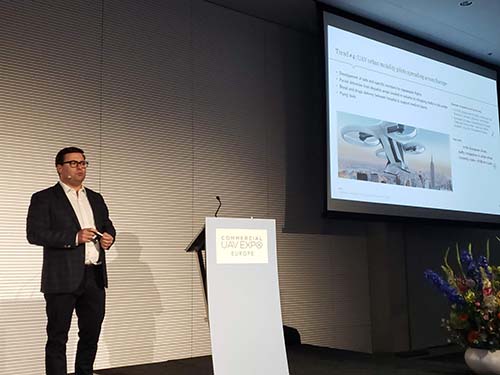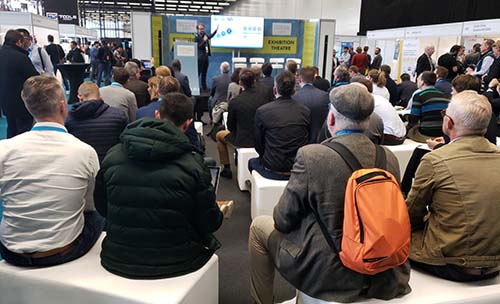A small confession: since I'm more focussed on the downstream applications of data collected by drones, I tend to leave commentary on flight regulations to the people that specialize in that area, and there are plenty of people who have a lot to say about all of it, especially in North America. Given all this talk about regulation, it's easy to get caught up in the hysteria about how it's changing and restricting the commercial application of drone technology.
Thankfully, this year’s Commercial UAV Expo Europe has yet again demonstrated numerous pragmatic approaches to the technology in Europe which are being positively impacted and enabled by current and future drone regulation.
Michal Mazur
Seven trends shaping the UAV industry of 2019 - including regulation
Michal Mazur of PwC opened the conference outlining 7 trends for the coming year. These were:- Generation of UAV related revenues by telcom operators
- Energy grid operators scaling up autonomous detection of failure modes
- UAV photogrammetric/lidar capture becoming standard insight tools for mining
- UAV urban mobility pilots spreading across Europe
- UTM model(s) to be confirmed and rolled out
- Rapid growth of counter-drone solutions market
- BLVOS waivers and regulation becoming standard in Europe
Developing risk management tools for operational growth
The account of what has already been enabled in Switzerland through the development of the SORA (Specific Operations Risk Assessment) toolset to assess risk as opposed to arbitrarily assigning certification was especially enlightening. The effort has gone a long way to help enable drones to perform operations that society was not able to achieve previously.Using this framework, SwissPost in conjunction with Silicon Valley start-up Matternet, started trials of Beyond Visual Line of Sight (BVLOS) deliveries back in 2015. Since 2017, they have been operating commercial BVLOS delivery operations over people in the Zurich and Lugano. This has led to the FAA recently approving a partnership between UPS and Matternet to start delivering medical samples via drones.
Sebastian Babiarz speaks during the SESAR JU Demonstration Projects presentations















Comments